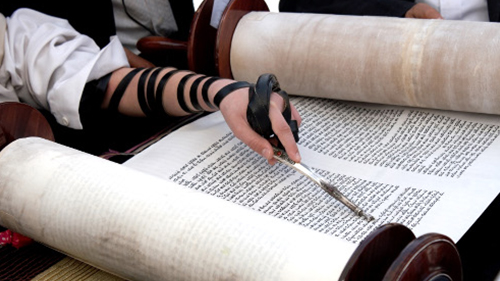A few years ago, some experts decided to degrade a planet which mythologically ruled the underworld, and reduced its dignity to a mere asteroid. Why? Because its orbit was erratic, a bit shifted and more elliptical than its other celestial brethren.
By: Rabbi Nir Barkin and Smadar Bilik, DOMIM – aLike Israel-Diaspora Project, a joint initiative of the Diaspora Ministry of the Israel Government and the Israel Movement for Reform and Progressive Judaism (IMPJ) The story of the Tower of Babel, which appears toward the end of this Torah portion, marks the end of the series […]
By: Rabbi Danny Burkeman, Rabbi at The Community Synagogue in Port Washington, NY. He is a previous member of the WUPJ Board and was formerly one of the Rabbis at West London Synagogue. He has a weekly Torah commentary “Two Minutes of Torah” available on iTunes and you can read more of his writings on his […]
We are all dismayed and appalled by the bad news coming out of Syria. Assad’s regime has most likely gassed its own people using Sarin gas. Its chemical formula was developed in 1939 by the Ig-Farben laboratories, the same which has developed Zyklon-B of cursed memory. “There is nothing new under the sun”, says Qohelet (1:9).
“Torah around the world” should be the name of this week’s Parashah, rather than simply calling it Noah. The colour and creativity of the story of Noah often overshadows the later elements of the portion which describe the settlement of the world by the children of Noah in chapter 10 of the book of Genesis. In fact, in the Reader’s Digest Condensed Bible (a real work, published in 1982), the chapter is removed in its entirety. However, this chapter is of much more than genealogical importance. It reminds us that we are here to connect with and learn from each other.
Parashat Noach tells us two stories that have haunted the Western imagination for over two thousand years, and remain chillingly relevant now. The images are iconic. Noach rides the flood with the entire gene pool of the planet huddled in the darkness beneath his feet, while the wreckage of the world floats in his wake. And the thwarted architects of the great City and Tower of Babel shout vainly into a blizzard of meaningless words, before scattering blindly in panic and despair, refugees of God’s displeasure.
The United Nations General Assembly has just completed its annual meeting in New York. It should be seen as a time when people come together to speak about common goals and peace. Inside the UN, some speakers call for cooperation, while others stoke the flames of hatred.
No story in literature teaches us more about what God is—and what God is not—than Cain and Abel. Two brothers make offerings to the Lord: God accepts Abel’s and rejects Cain’s! Why? Jewish tradition has been uncomfortable with the idea that the Eternal One would act capriciously, so the consensus of Midrashic thought is that Cain brought an ordinary offering or, perhaps, an insultingly inferior one. Abel, on the other hand, brought the best offering he could.
Still fresh in our minds is our celebration of Rosh Hashanah, the holiday that commemorates the beginning of the beginnings, the creation of the world. This coming Shabbat, once again, we will concentrate on the same theme as we read and study the very first Torah portion, B’reshit. For us human beings perhaps the most noteworthy verses in this part of the Holy Scriptures are the ones that deal with the birth of Adam, our common ancestor.
“In the beginning”… the ancient Israelite account of creation presents us with a vision of infinite possibility. It pinpoints the unrepeatable, and unsustainable, instant when everything is potential, because nothing yet exists. All artists know this moment, and they also know, with a sinking heart, that their work will never truly capture their vision, that something will always be distorted, narrowed, lost. Did this same anguish afflict God?

